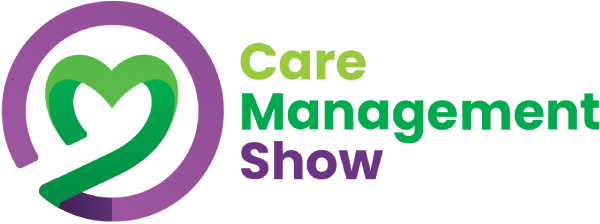My experience at Care Managers Show
)
Healthcare Property editor Jo Makosinski provides an overview of her time at Care Managers Show in Birmingham last week, with a particular focus on the Free CPD stream.
Hundreds of people from across the care industry gathered at the NEC in Birmingham last week for the Care Managers Show.
Leading suppliers and care providers exhibited at the event, which also included an extensive conference programme across five streams.
I chaired a stream which included talks by key figures in the care sector, including Charlie Jones, chief operating officer at BKR Care Consultancy, who explored the journey to achieving an ‘outstanding’ rating from the Care Quality Commission (CQC).
Magic moments
Charlie told attendees: “The journey to ‘outstanding’ is not as difficult as retaining the rating. You have got to be outstanding every day and that’s pressure. It’s about achieving everything the CQC regulator wants you to, but going that extra step. But sometimes the focus is so much on what CQC wants that we miss the people in front of us.”
She pointed out the importance of listening to and investing in staff for delivering ‘outstanding’ care, as well as documentation of best practice.
“It does not have to be expensive to be outstanding and you don’t need huge amounts of staff,” she added. "We are already doing things every day that other people would consider to be outstanding, but often we are not recording it. In care homes when things go wrong there are lots of forms to fill in, but when something outstanding happens, there’s nothing. I use ‘magic moment’ forms which are located next to the complaint forms. It’s about how do you record and capture the things you do every day that are outstanding.”
Learning from experience
The way in which a care operator deals with complaints is also key to their reputational success. This was an area covered by Nick Banister-Dudley, head of compliance at Hallmark Luxury Care Homes.
Nick said: “We want to learn from things we did not do right. It increases satisfaction and confidence in the organisation. Identifying areas for improvement is not a bad thing. Regulators will not believe a service that says there have been no complaints. The key is that where things have gone wrong, how have you put them right and mitigated the chance of them happening again in the future?”
He shared Hallmark’s approach to complaint handling, involving a process which ensures the best overview of the situation and sets clear objectives for improvement.
Other speakers on the first day of Care Managers Show included Louis Coyne from OneTouch Health, who talked to delegates about implementing digital care records. He told them: “It’s about operational and care planning efficiency; documenting all interactions, wherever they take place, through a standardised piece of technology, and pushing that through to managers.”
Being alive vs living life
Hannah Miller, head of dementia at Orchard Care Homes, gave a hard-hitting speech about the importance of treating residents with dementia as people.
“We need to hold a mirror to ourselves sometimes,” she said. “My starting point is to think about yourself. How would you feel if you were in surroundings you were struggling to understand, where your independence was being increasingly restricted and you didn’t have things to occupy yourself with, and you were less and less able to make people understand that is how you are feeling?
“When we see people with dementia exercising high levels of stress it’s often because we are confusing them. Living life and being alive are two different things. We need to reframe language and talk about people as people.
“The vast majority of the time when people are referred by social services the care home gets a list of problems; we know nothing about the actual person. Before they have even arrived we have stripped them of their identity and reduced them to a series of labels.
“At Orchard we focus on the person first, not their dementia. We talk about the condition, we try to understand the behaviours, and we try to provide meaningful occupation.”
Reframing the death experience
The often-ignored subject of death, dying and bereavement was explored in a talk by Dr Emma Clare, co founder of Fin, who called for training to be improved among all care staff.
She told the conference: “We have lost the human-to-human communication when talking about these topics. The CQC says that, as care providers, we need to be able to support people to learn for important life changes so they can make informed decisions about the future, including at the end of life.
"Staff in care have got to be able to have advanced planning conversations with people. It’s all our jobs to be having these conversations. It’s about reframing the death experience and, as managers, we have a role in making sure staff see it as a learning experience and a human one, rather than a personal failure or a system failure.”
Sharing knowledge
Supporting staff was also the focus of Andy Donnachie’s talk on the importance of Continuing Professional Development (CPD).
The chief operating officer of the CPD Group said: “Sharing knowledge is so important in this industry – making sure we are aware of advancements in healthcare processes, new regulations and guidelines, new technology, and new equipment. It leads to better decision making and improved care delivery.”
He pointed out that, with thousands of CPD opportunities out there, quality was vital: “CPD training providers are becoming more and more interactive, with virtual learning and VR, AR, and gamification, but it must be quality CPD that meets the needs of the employer, so do your homework and don’t be afraid to ask questions.”
Alongside the exhibition and conference, the two-day event also included a packed entertainment offering, including a live performance from boyband 5ive, musical bingo with tribute band Abba Glamma, and a cooking demonstration from MasterChef's Theo Michaels.
Book your ticket for the next Care Managers Show, taking place at ExCeL London on 29-30 November.


